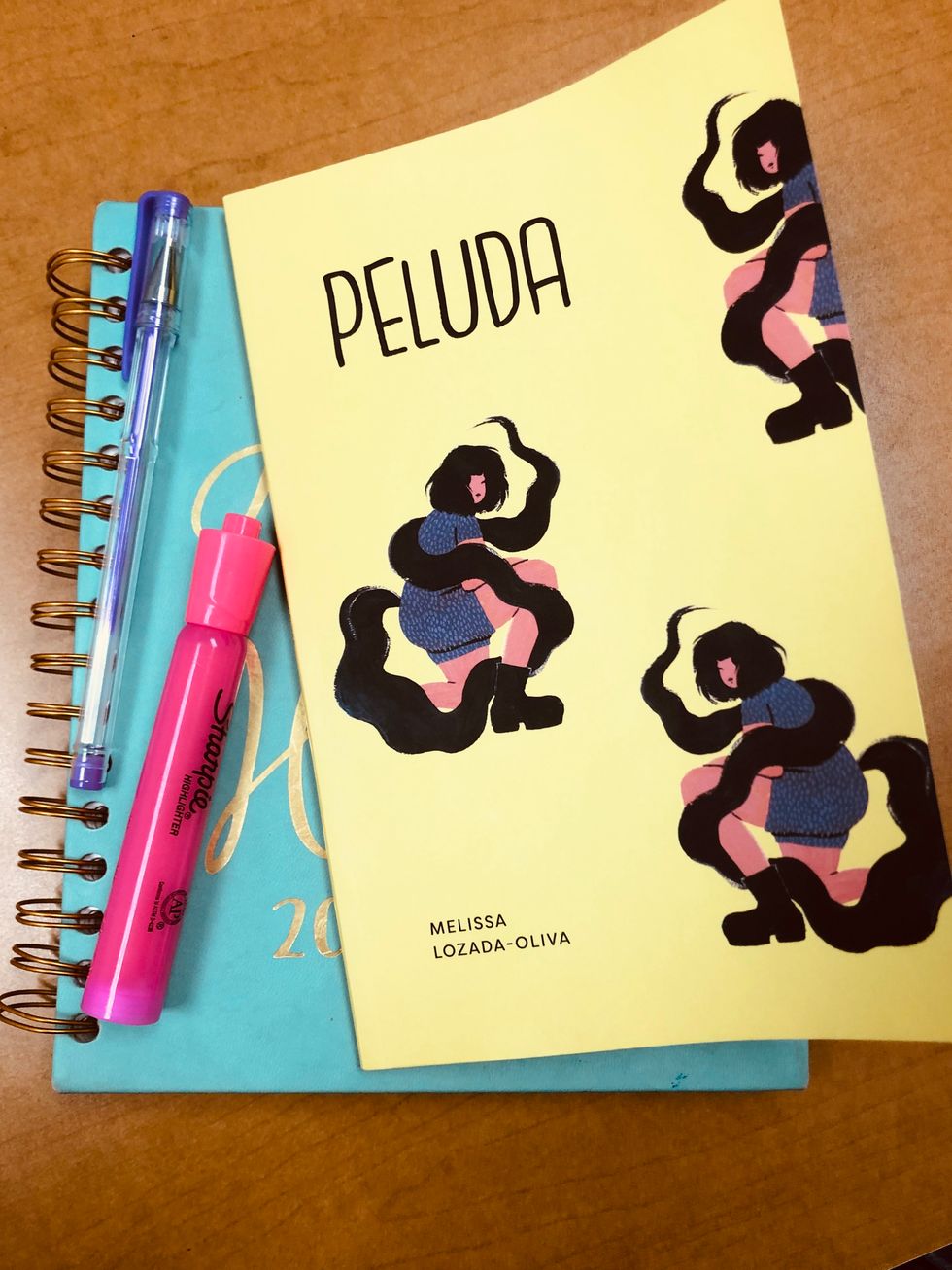Melissa Lozada-Oliva is a performance poet, essayist, writing workshop leader, and co-host of the "Say More" podcast with her poet BFF, Olivia Gatwood.
Published by Button Poetry in 2017, her poetry book "Peluda," as described on her website, "explores the intersections of Latina identity, feminism, hair removal and what it means to belong."
In an interview, Lozada-Oliva explained that the Spanish title is a word of endearment, meaning hairy girl or furry beast.

With the meaning of the title and the content of the poetry, "Peluda" is a perfect example of intersectional feminism, examining Lozada-Oliva's identities and their manifestations in her life.
What is Intersectional Feminism?
Coined by Kimberle Crenshaw, intersectional feminism is an idea and movement focused on the different experiences of women based on their unique set of identities. For example, my life as a white female in the United States differs from Lozada-Oliva's experiences as a Guatemalan-Colombian American.
One's various identities (race, religion, gender, ability, class, etc.) intersect to create a unique life experience and an individual set of advantages or challenges.
Body Hair And Oppression
In "Yosra Strings Off My Mustache Two Days After the Election in a Harvard Square Bathroom," Lozada-Oliva utilizes a story about hair removal to examine her intersectional identity.
Lozada-Oliva and Yosra, her Middle-Eastern friend and coworker, wait to clean a white family's sloppy table. Melissa views this scenario through the dichotomy of the lives of white population and oppressed groups:
we tell him, don't even worry about it, because we have done all of the worrying for them our entire lives because we have learned to forgive every space we enter…
Afterward, they head to the dingy restaurant bathroom so Yosra can remove Melissa's mustache because she is "about to see a white boy & [wants] him to like [her]."
Along with beauty standards, she worries about "someone asking us what we're doing here, someone making us leave," questioning her security in her workplace.
And while Yosra claims that "this is the most middle eastern thing [she's] ever done, Melissa ponders:
i think of what the most guatemalan-columbian thing i've ever done is & maybe it's grow. i think about the most american thing we've ever done & it's hide in this bathroom. I think about the most womanly thing we've ever done & it's live anyway.
These explanations of her identities depict how each aspect of her being has impacted her life, just as intersectional feminism posits.
Cracking the Facade of White Feminism
"We Play Would You Rather at the Galentine's Day Party" highlights the differences in experiences and life challenges between white and oppressed women.
This poem recalls the story of Lozada-Oliva's turn at the game in which she challenges her "friends for the hour" to choose between being covered in fur or being hairless in all the right places but having an annoying tail.
These liberal millennial white girls berate Melissa for this seemingly insensitive, sexist question.
"Okay, but what if I love my body hair?" Nancy with a septum ring asks.
Lozada-Oliva has obviously pondered this question internally all her life ("I always choose the tail") because of the constant pressure to fit into the insensitive, sexist dominant culture.
Oppositely, the white girls have lived through the privilege of being born with acceptable physical features instead of their bodies hanging in contrast against these standards.
Unlike Melissa who was socialized to remove body hair to be considered feminine, to be considered beautiful under the measure of whiteness.
Lozada-Oliva's intersectional experience of being a Latina woman manifests in her distinct experience with body hair and beauty standards compared to the white feminism of her girlfriends.
Implications for Readers
Inspecting Lozada-Oliva's experiences through her intersectionality, "Peluda" studies the challenges of the poet and depicts how one's combination of identities affects life.
Along with highlighting white beauty standards with her stories about hair removal, the book explores other aspects of her identities.
When asked about the intended message of the book, Melissa states, "I want people to feel a little uncomfortable, embarrassed maybe because I'm uncomfortable and embarrassed all the time."
"Peluda" is sure to comfort those who have lived through challenges based on their intersectionality and enlighten those who have not heard of these experiences until flipping to the first page.





















